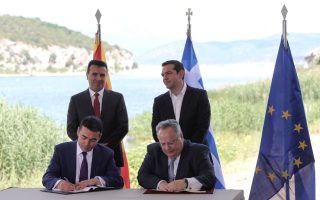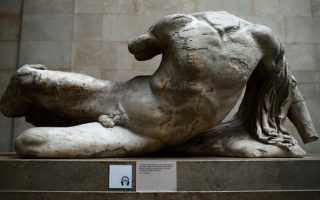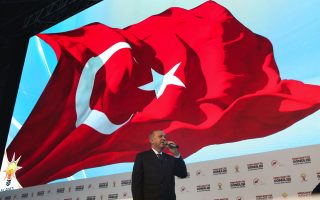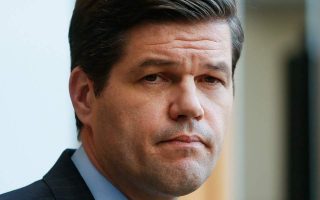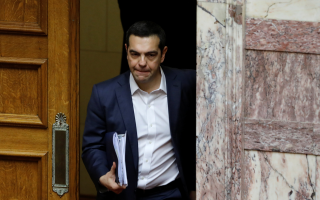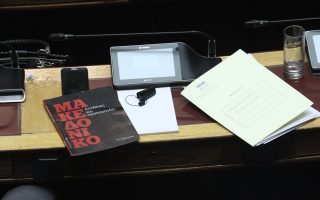After the Prespes accord: Turkey’s presence in FYROM
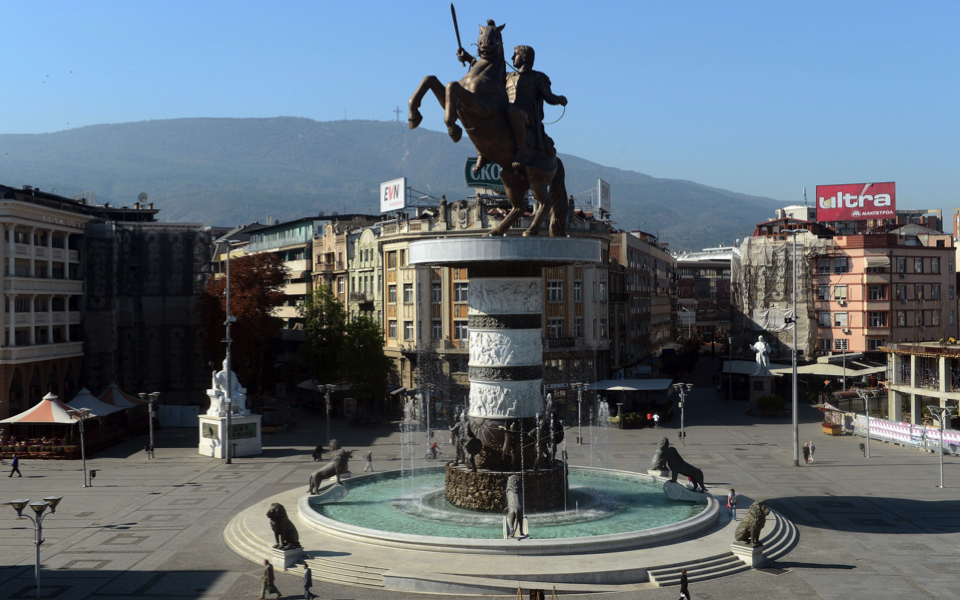
The Prespes agreement has – one way or another – successfully been ratified by the parliaments in both Skopje and Athens. The general view in the Western world is that the end of the long-term dispute will bring stability to the area as well as establishing a bond between the NATO countries and “North Macedonia,” eliminating the risk of entente with Russia, which now has eyes only for Serbia in the Balkans. The subject of this article will not be the positive and negative repercussions of the agreement on Greece, although they will definitely be giving us food for thought for years to come.
In the Former Yugoslav Republic of Macedonia today there are an estimated half a million Muslims, which is about one-third of the total population. There are 600 mosques in operation, while approximately 300,000 people attend Friday prayers. The religiosity of the population makes it more amenable to the politics of Turkey’s ruling AKP party, since religion is its driving force toward recruiting the Muslim world to a common cause: making Turkey a peripheral power.
Indeed, as the first president of FYROM visited Turkish President Turgut Ozal in the wake of the birth of the republic, in another historic moment for the struggling state, Foreign Affairs Minister Nikola Dimitrov took the first plane to Ankara.
The flagship organization among the plethora that Turkish President Recep Tayyip Erdogan has set up using soft power politics and has played an important part in Turkish foreign policy is the Turkish Cooperation and Coordination Agency (TIKA), with a presence in more than 150 countries. TIKA set up its Skopje office in 1997, completing 600 projects over the next 20 years.
The essence of public diplomacy lies in playing a role in ordinary people’s lives, and this is what the organization tries to achieve. I happened to be in Centar Zupa, a town in the west of the country near the Albanian border. It is a place whose people are more than grateful to TIKA. “Without Turkey, we would be impoverished,” the mayor says. TIKA has been running a beekeeping project in the town for 12 years, training and equipping the locals. Six hundred beehives were distributed to 60 families just last week. TIKA was instrumental in providing humanitarian aid during the floods two years ago, as well as equipping and renovating the maternity ward of the Mother Theresa Hospital in Skopje.
TIKA has been setting up, renovating and providing financial backing for schools, museums and mosques. It has established the now-thriving International Balkan University in FYROM’s capital.
More culturally oriented is the Yunus Emre Institute, named after the famous Turkish poet. It is housed in a lavish building in central Skopje. Turkish language lessons are offered, making Turkish more popular than English among military personnel. Publications and summer schools in Turkey are quite appealing to the general public too. Turkish writers are invited quite often, promoting Turkish literature.
Anadolu Agency is present in the country as well as TRT World, which broadcasts programs in both Turkish and Slavic. The Turkish minority enjoys more media choices than the Albanian one, despite the enormous difference in size.
Turkish TV serials, the cornerstone of Turkish soft power, with an annual turnover of $465 million and 500 million viewers, are extremely popular and many travel to Constantinople to see the buildings where the serials are shot. Similarly, Turks travel to Bitola to admire the military academy Kemal Ataturk attended.
There are of course limitations to Turkish soft power and they exist mainly on account of the authoritarian regime Erdogan has imposed. It has been ranked 66th in the world as far as internet freedom is concerned and the number of political prisoners is estimated at 50,000 by Amnesty International. Some 110,000 are estimated to have lost their jobs on charges of being affiliated to the Fethullah Gulen movement, once a leading exporter of Turkish neo-Ottoman culture. Gulen and Erdogan parted ways in 2013. The love affair between the AKP government and the Gulen movement turned sour in late 2013, after Gulen criticized the government’s response to the Gezi Park protests and its policy of closing down Gulen’s private “prep schools.” Today Turkey calls the movement the “Gulenist Terror Organization,” or FETO. The Turkish government insists that Skopje does not do much to fight FETO institutions. The relationship is not a bed of roses and had it not been for the attitude of “my enemy’s enemy is my friend,” things would have turned out differently.
The absence of Greek soft power in FYROM is phenomenal. Planning long term has never been one of Greek politics’ strong points. Now that the day after the Prespes agreement has arrived, we have to start thinking about it. This takes broadmindedness, strategy and patience. If we are to argue about Alexander the Great, why don’t we talk to them about Aristotle first?
Iraklis Gerogiokas is a member of New Democracy’s political committee.
